As the General Assembly reconvenes, local leaders say they hope legislators will take a more favorable view of municipal issues in 2015.
Chapel Hill Mayor Mark Kleinschmidt says during the last legislative session, some members of the General Assembly declared war on North Carolina’s cities.
“In the last legislature, the relationship between the legislature and cities was not very good,” says Kleinschmidt. “We had several members of the legislature who seemed to be at war with the cities that they were representing, particularly Representative Stone and Representative Moffitt.”
But Kleinschmidt says he’s optimistic that this year will be different, in part because those representatives were voted out of office.
Though the House and Senate are still under firm Republican control, state Democrats managed to gain three seats in the November election. Two of the incumbents who lost their seats led the charge to rein in municipal authority. Kleinschmidt says their loss sends a message to those who would target city government.
He’s also looking to Governor Pat McCrory to take a stand on a number of controversial issues including the statewide expansion of Medicaid.
“Now he’s got to decide if he’s going to pick some fights, and it looks like he’s already laying the groundwork for some of those fights,” says Kleinschmidt.
A recent report from George Washington University shows North Carolina lost $2.7 billion dollars last year when Republican leaders decided to forgo Medicaid expansion. The state stands to lose $3.3 billion more next year.
There’s also a showdown looming on historic preservation tax credits. The General Assembly repealed them last year, but even before the legislature reconvened, civic leaders from across the state launched a bi-partisan effort to bring them back.
“We have some lines being drawn and that’s going to be fun to watch,” says Kleinschidt. “Now, can Chapel Hill and out legislative delegation get in there and exploit some of that? That remains to be seen.”
Kleinschmidt and other members of the Chapel Hill Town Council sat down recently with state Senators Valerie Foushee and Mike Woodard, as well as Representative Graig Meyer and a spokesperson from Representative Verla Insko’s office to hash out plans for the 2015 legislative session. Kleinschmidt says the local delegation will mostly be playing defense to help towns maintain their revenue sources and planning authority.
If the General Assembly follows through on a promise to do away with extra-territorial jurisdictions, it could throw a wrench in Chapel Hill’s plan to help fund a sewer project in the Rogers Road community by extending the town’s ETJ to encompass the neighborhood.
“It would take Chapel Hill out of the equation,” says Kleinschmidt. “We would have to find some roundabout ways to provide direct financial contributions.”
Despite reports that Republican leaders have already begun conducting closed-door sessions on education policy that shut out Democratic leaders, Kleinschmidt says he and other local leaders are looking to the upcoming legislative session with hope.
“At this point, let’s decide to be optimistic and hope that the end is near for those closed door meetings, that there will be attempts to bring in members of the minority to advise and provide some input into the policies of our state.”
The 2015 legislative session convenes Wednesday for a one-day organizational session. The General Assembly will reconvene on January 28.
Related Stories
‹

House Republicans Considering Medicaid Expansion BillSenate Republican leaders are still opposed to Medicaid expansion, but House Republican leaders say it's time to discuss it.
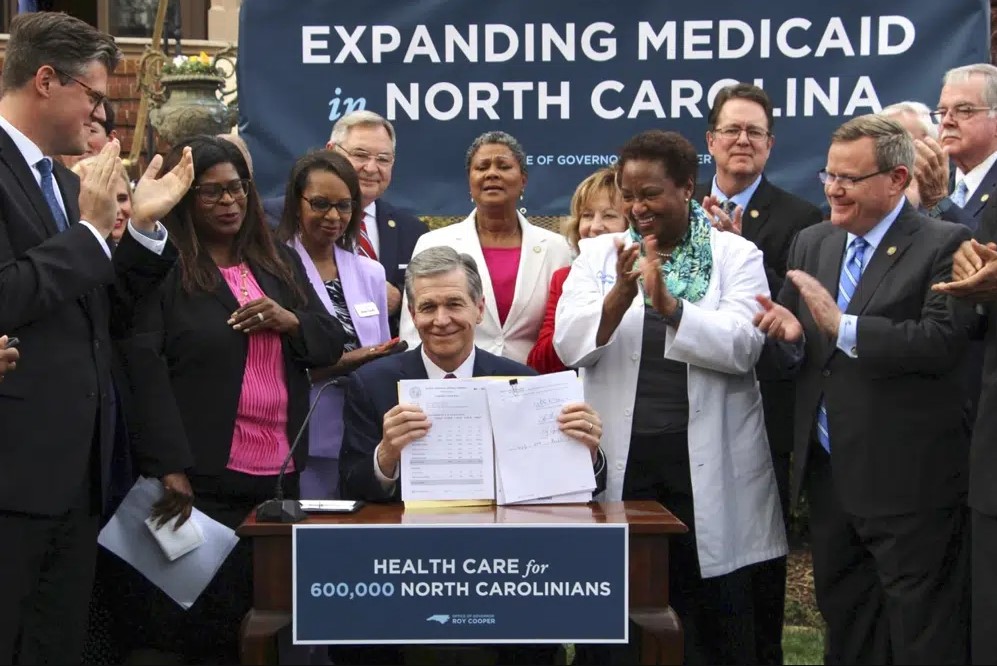
Medicaid Expansion Starts in N.C.; Orange County Officials Share What to DoAfter years of debate and months of planning a rollout across the state, Medicaid expansion is officially in effect for North Carolina.
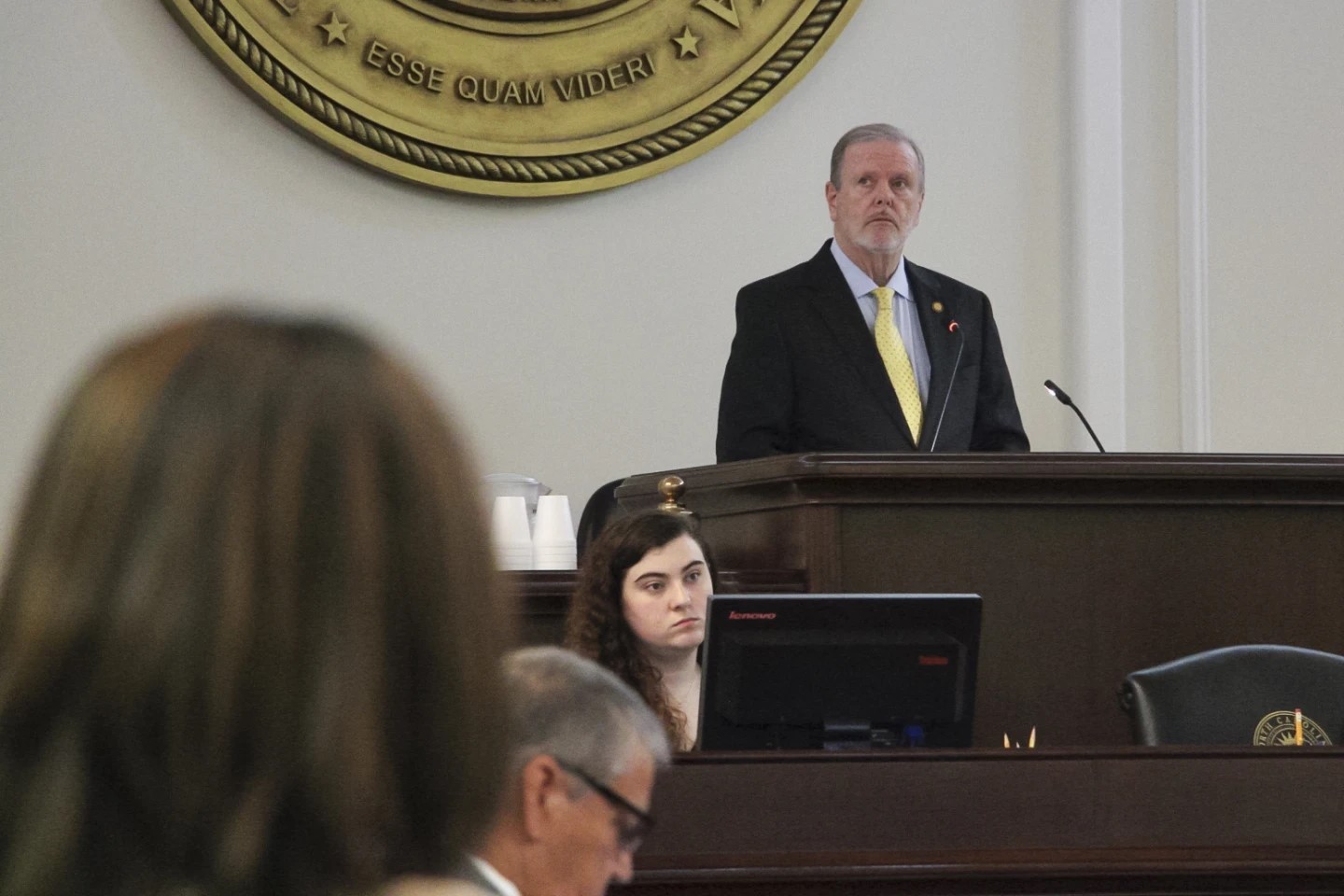
Medicaid Expansion To Begin Soon in North Carolina as Governor Decides To Let Budget Bill Become LawWritten by GARY D. ROBERTSON North Carolina Gov. Roy Cooper announced Friday he would let the state budget bill coming to his desk become law without his signature, opening the way for Medicaid coverage for 600,000 low-income adults, with some receiving the government health insurance within weeks. The Democratic governor unveiled his decision on the two-year spending […]

N. Carolina Hospitals Offer New Medicaid Expansion ProposalWritten by GARY D. ROBERTSON North Carolina’s hospitals and hospital systems on Friday unveiled an offer that could shake up stalled negotiations to pass legislation that would expand Medicaid to cover hundreds of thousands of low-income adults in the state. The North Carolina Healthcare Association said the offer sent to Republican legislative leaders and Democratic Gov. Roy Cooper also […]
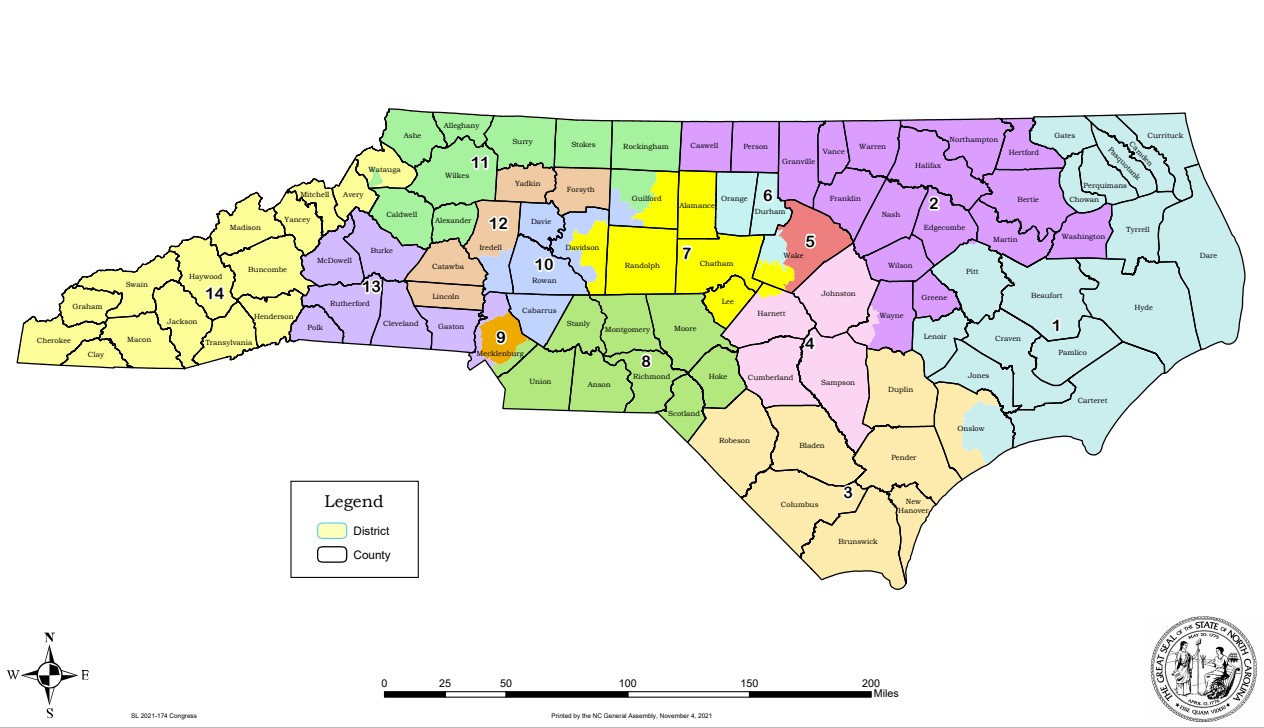
'Decided Before the Election Happens': Duke Experts Say New NC Congressional Maps are Intentionally UnfairLast week Duke University held a panel to discuss the ethics of the new boundaries and the ways the new maps will likely shape the North Carolina political scene.

Cooper Seeks Big Debt Package, Pay Hikes, Medicaid ExpansionWritten by GARY D. ROBERTSON North Carolina Democratic Gov. Roy Cooper on Wednesday proposed a spending and borrowing spree by state government that he said is critical to fulfilling education, health care and infrastructure demands that were evident before the pandemic but have been exacerbated since. With state coffers filled with unspent funds and $5 billion […]
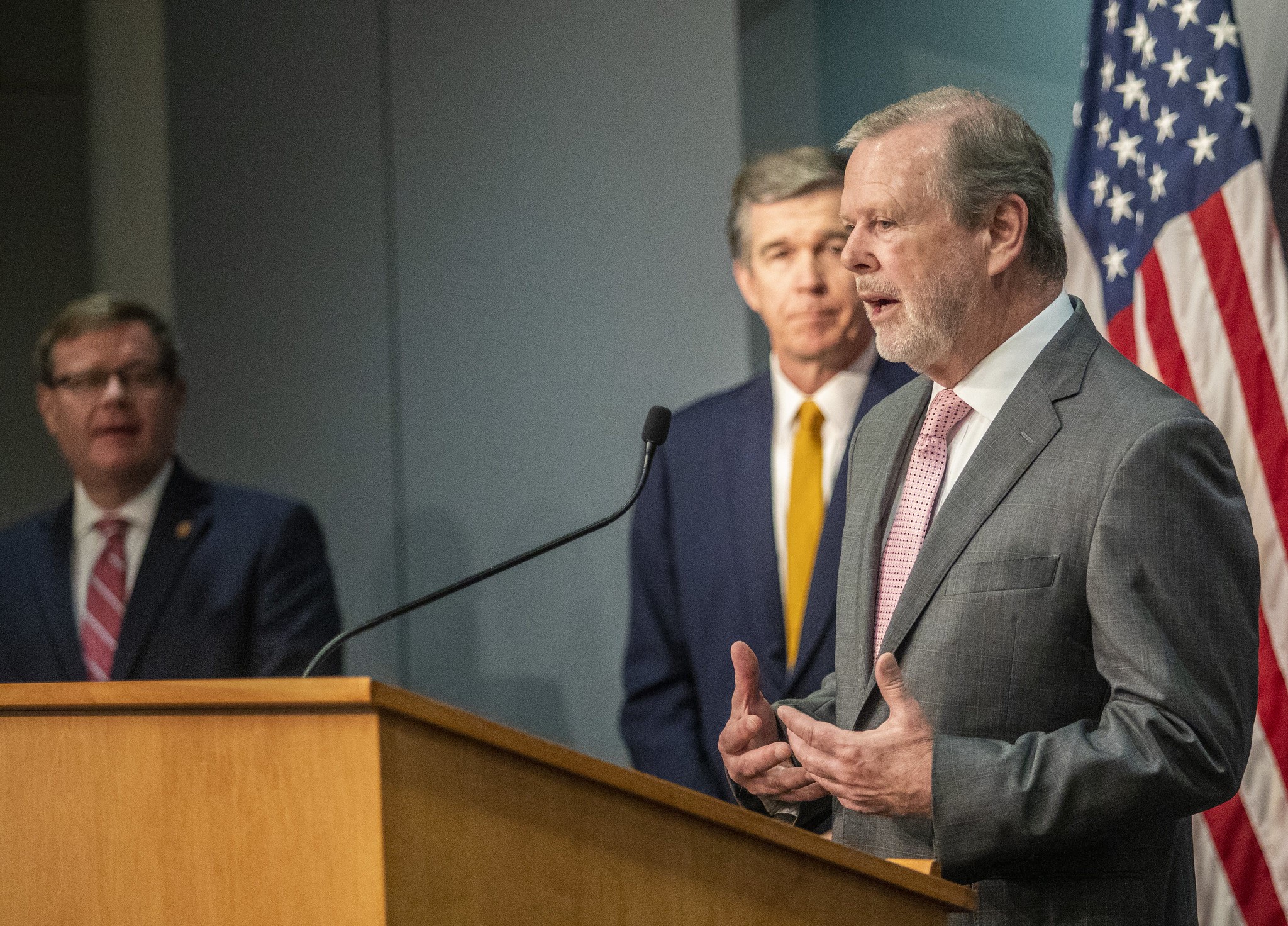
Financial Incentive for More Medicaid Draws Mixed ReactionA financial carrot for North Carolina to expand Medicaid to hundreds of thousands low-income adults is raising already elevated hopes among Democratic Gov. Roy Cooper and allies that the General Assembly will finally adopt it this year. But those aspirations remain uncorroborated by GOP leaders who remain wary of expansion or don’t see it happening. […]
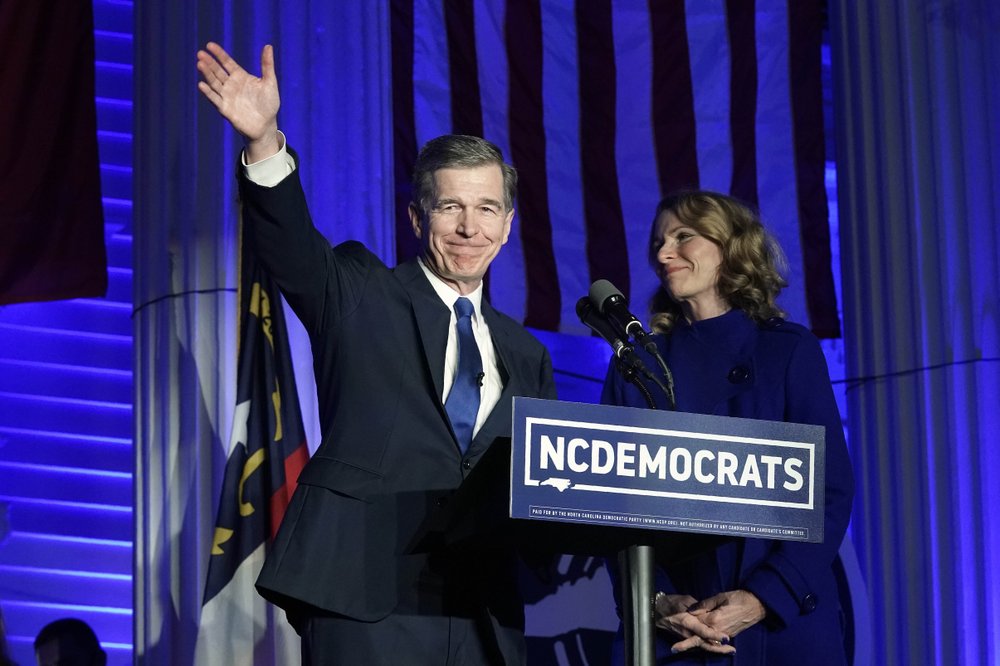
Cooper on Election Results: 'There Is a Lot of Status Quo'North Carolina Gov. Roy Cooper said in a news conference on Thursday that he will continue to push forward with his goal of expanding Medicaid at a time when voters decided to maintain GOP control of both chambers of the Legislature. “There is a lot of status quo, but I do think that my election, and […]
![]()
NC Virus Relief Aid Heads to Cooper as General Assembly EndsThe North Carolina legislature finalized a plan Thursday to spend $1.1 billion of the state’s remaining COVID-19 relief funds from Washington, including direct cash payments to nearly 2 million families. The package, which also provides a $50 uptick in weekly unemployment benefits and more funds for virus testing, tracing and personal protective equipment, cleared its […]
![]()
North Carolina Medicaid Expansion Advocates 'Mad' as Bill IdlesNorth Carolina remains among the dozen or so states that haven’t agreed to expand Medicaid to more of the working poor amid a lingering budget stalemate and continued skepticism among top Senate Republicans about the idea. The General Assembly met Tuesday for a session in which legislation related to health care access was among potential […]
›









